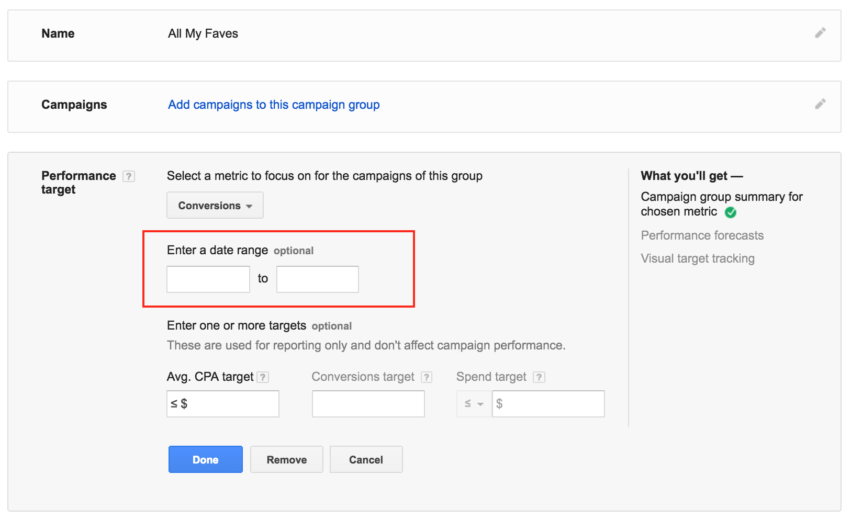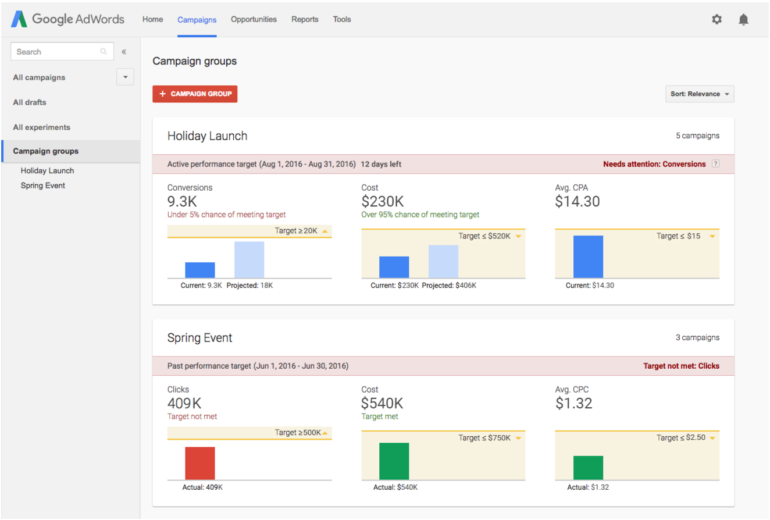We are all aware that the marketing industry is growing continually more complex. Frequent expansions and innovations in the digital marketing world are the evidence. As marketing strategies become more intricate, we see that AdWords is working hard to keep up. Our PPC strategies often involve multiple touch-points across various media when inviting users to convert, yet the data behind the story is difficult to access quickly. Google’s latest announcement responds to this predicament by introducing Campaign Groups, now available within the AdWords interface.
Similar to features already available in other bid management platforms, Campaign Groups allow advertisers to aggregate data from a specific set of campaigns based on a common theme or objective. After defining the Group, combined performance data and forecasts can help identify which strategies are working and which are struggling to meet goals. Users are even given the option to designate a date range in order to view more specific pacing and projections.

While Campaign Groups may not seem like a significant innovation, they provide a quick and straightforward way to monitor spend, clicks, and/or conversions across multiple campaigns without having to continually filter for labels. The setup also makes it easy to compare performance quickly across multiple Groups.

With this announcement, there are a few items that should be noted.
- For advertisers utilizing Enhanced CPC or Target CPA bidding in AdWords, setting up Campaign Groups will not impact Google’s optimization algorithms for those campaigns.
- Campaign Groups do not contribute to campaign, ad group, keyword, or ad management. It is strictly a new tool for visualizing data.
- Users have noted that campaigns with shared budgets may be ineligible for use with Campaign Groups.
Although AdWords Campaign Groups may not win over users from third-party tools that allow aggregation across multiple platforms, it is still a notable addition to the interface. I believe it will save advertisers both time and energy by allowing for high-level analyses previously only accessible through a process of labeling, filtering, pivoting, and/or guesstimation.
Are you excited or skeptical about implementing Campaign Groups in your accounts? Let us know on Twitter.



